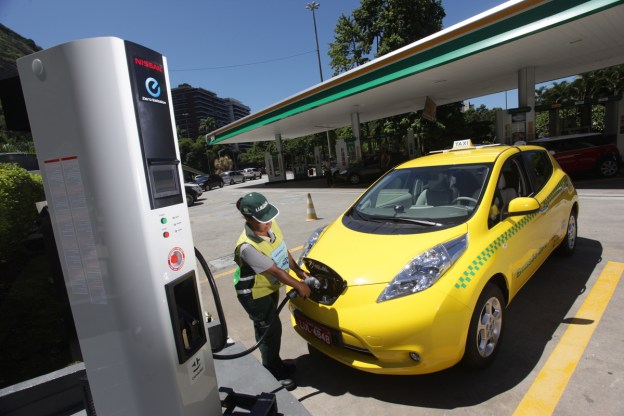
Electric vehicle charging station installer, ChargePoint, has announced plans to install 80 new EV quick chargers throughout New York City.
Spurred on by a $1-million investment from The New York State Energy Research and Development Authority (NYSERDA), ChargePoint will start with installations on the Solaire apartment building in Manhattan’s Battery Park. Standing as the first structure to receive a Leadership in Environmental and Energy Design (LEED) gold certification in 2003, the building is the perfect place for the new EV chargers.
“Upgrading the city’s EV infrastructure to new, universal ChargePoint chargers is imperative to the future success of a sustainable society,” ChargePoint boasted in a recent press release by way of Autoblog Green.
The ChargePoint 80 is just a small step along the goals set by Mayor Michael Bloomberg. Over the next seven years, Mayor Bloomberg plans to transform some 10,000 (roughly 20 percent) of New York City’s parking spaces over to EV charge units.
We’re glad to see such an ambitious goal set by Bloomberg. While the ChargePoint 80 falls far short of the 10,000 chargers needed by 2020, it’s a good start. If EVs are going to be a viable alternative to fossil fuel-burning cars – and we hope they will – they’ll need places to charge up.
Editors' Recommendations
- Tech giant reveals nice price for new EV to take on Tesla
- 2024 Chevrolet Equinox EV: price, release date, range, and more
- Why your EV’s voltage matters, and what it means for your car’s charging speed
- Beware of this EV with pitiful charging speed — and others like it
- Mercedes EV charging hubs are coming to North America by the end of the decade


